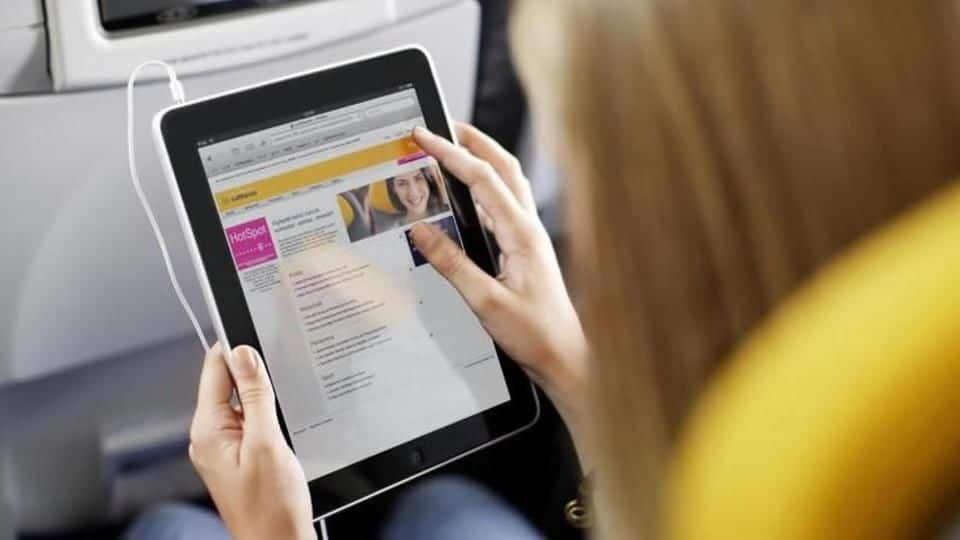
In-flight internet may cost you Rs. 500 for 30 minutes!
What's the story
The TRAI recently approved in-flight connectivity (IFC) in India, and also released its recommendations on the matter. But the price might play spoilsport: reports say 30 minutes of use can cost you a whopping Rs. 500, and Rs. 1,000 for an hour. Here's putting things in perspective: you could get unlimited calling, SMS and 136GB data for 91 days with Jio's Rs. 498 plan.
Demand
A lot of passengers apparently choose airlines based on internet-availability
IFC can be of two kinds, depending on available technology: internet connectivity through Wi-Fi, and mobile communication services on board aircraft (MCA). Wi-Fi is the more commonly available technology. A 2016 survey by British satellite telecom company Inmarsat found that 92% passengers want in-flight broadband. It also revealed as many as 83% passengers choose airlines on the basis of internet availability.
Guidelines
TRAI's recommendations on IFC in India
The TRAI laid down guidelines for IFC in India. Firstly, the minimum height for MCA services will be 3,000 meters so it's compatible with terrestrial networks. A separate "IFC service provider" category will be created, not limited to Indian entities. They can use either INSAT systems or foreign satellites. Initially, an annual license fee of Re 1 will be levied on service providers.
Costs
The estimated costs
The cost will have to be decided based on several factors, including demand and the rates airlines will have to pay to service providers. For passengers, it might cost 20-30% of ticket fare. Such high costs may force low-cost carriers to give up the option. NewsX says the rates currently being reported, Rs. 500 for 30 minutes, are expected to rise later.
Potential
Can airlines expect boost in profits with IFC?
Frequent travelers claim except a few business class flyers, takers for IFC even on international routes are low. According to Air Passengers Association of India president DS Reddy, "IFC may be useful on longhaul flights, but I've hardly seen anyone use it on international routes." If passengers refrain from using IFC due to its excessively high costs, airlines might have to rethink their strategy.